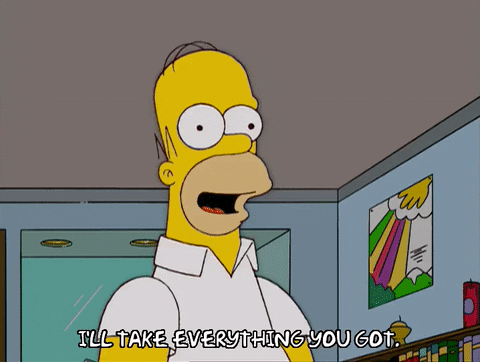“One of the most powerful things that we want is for there to be real understanding in those relationships, that the people on the other side know who we are and are caring and validating and accepting.” – psychologist Harry Reis.
BRAIN WAVES
Prized possessions. We love our stuff – there’s 2.3 billion square feet of self-storage space in the United States alone. But why? Some psychologists think we buy things to compensate for feelings of isolation For example, one study looked at attachment theory and people’s tendency to buy new stuff and hoard free stuff. The study found that people who had an anxious attachment style – typically associated with a fear of loneliness and abandonment – were more likely to find comfort in their possessions and also were more likely to excessively acquire objects in general. “Objects may substitute for interpersonal attachment,” the researchers wrote. It could be that loneliness is yet another reason we hold on to stuff.
It’s my party and I’ll cry if I want to. A new study finds that Americans would rather harm their own political cause than help an opposing one. In a series of experiments, people were told they could donate money to an opposing political party or subtract that same amount from a donation to their own party – over 70% of people chose the latter. They were so averse to supporting the other side that they would rather take their own financial hit. But there’s hope! In a follow-up experiment, the researchers told people that other members of their party compromised by giving a small amount to their opponents. Then, when people were told that other folks in their party were willing to compromise, they were more likely to do the same. The study’s authors say this might shed some light on bigger political moves: reaching across the aisle might help normalize compromise.
You started it! When it comes to conflict, most of us just want to shut it down. But increasingly, researchers find that there’s a better way to handle disputes. What if we stop trying to eliminate conflict and instead ask: how can we do conflict better? Listen to learn more.
ON THE HIDDEN BRAIN PODCAST: RELATIONSHIPS 2.0
Nov 28: Everyone wants to be loved and appreciated. In the final episode of our Relationships 2.0 series, psychologist Harry Reis says there’s another ingredient to successful relationships that’s every bit as important as love.
ON THE MY UNSUNG HERO PODCAST
Nov 29: "I tried to reassure him that I was okay, but…he just stood there with me."
Rick Mangnall reflects on the stranger who pulled over to help him after a car accident in 2008.
Don’t forget to send us the story of your unsung hero! Record a voice memo on your phone and email it to myunsunghero@hiddenbrain.org.
MIND GAMES
Stephen was looking at a photo. Someone asked him, "Whose picture are you looking at?" He replied: "I don't have any brother or sister, but this man's father is my father's son." So, whose picture was Stephen looking at?
LAST WEEK’S PUZZLE
Alice came across a lion and a unicorn in a forest of forgetfulness. Those two are strange beings. The lion lies every Monday, Tuesday, and Wednesday, and the other days he speaks the truth. The unicorn lies on Thursdays, Fridays, and Saturdays. The other days of the week he speaks the truth. “Yesterday I was lying,” the lion told Alice. “So was I,” said the unicorn. What day is it?
The answer: Thursday. The only day they both tell the truth is Sunday. But today can’t be Sunday because the lion also tells the truth on Saturday (yesterday). Going day by day, the only day one of them is lying and one of them is telling the truth with those two statements is Thursday. [Source]
FROM THE TWITTERATI…



A MOMENT OF JOY
This stylish orangutan…
Have an idea for Hidden Brain? A story you want to share with us? Send an email to ideas@hiddenbrain.org. And if you’d like to support our work, you can do so here. Listen to us on Spotify, Apple, Amazon Music or your favorite podcast platform.





